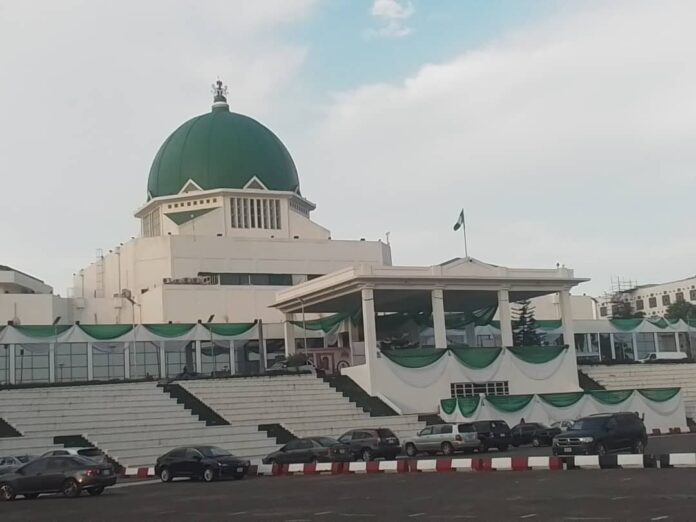ABUJA: The National Assembly has approved President Bola Tinubu’s request to borrow ₦1.15 trillion from the domestic debt market to fund the remaining shortfall in the 2025 national budget.
The Senate and House of Representatives gave their approvals on Wednesday, completing the government’s fiscal funding plan for the year.
At the Senate, the approval followed the adoption of the report of the Committee on Local and Foreign Debt, chaired by Senator Wamakko Magatarkada Aliyu (APC, Sokoto North).
The committee explained that the 2025 Appropriation Act provides for a total expenditure of ₦59.99 trillion an increase of ₦5.25 trillion from the ₦54.74 trillion earlier proposed by the Executive.
This expansion, it said, created a ₦14.10 trillion deficit, of which ₦12.95 trillion had already been approved for borrowing. The newly approved ₦1.15 trillion represents the unfunded portion needed to complete the financing plan for the fiscal year.
President Tinubu, in a letter to the Senate last week, said the borrowing was necessary to bridge the funding gap and ensure full implementation of government programmes and projects under the 2025 fiscal plan.
The Senate also adopted a motion sponsored by Senator Abdul Ningi (PDP, Bauchi Central), mandating the Appropriations Committee to intensify oversight to ensure that the funds are used strictly for their approved purposes.
The approval marks the latest borrowing initiative by the Tinubu administration, coming weeks after the Senate endorsed another presidential request for an external loan package worth $2.847 billion including a debut $500 million Sovereign Sukuk to fund infrastructure projects and refinance maturing Eurobonds.
According to the Senate Committee on Local and Foreign Debt, $2.347 billion will be raised from the international capital market, while $500 million will be sourced through Sukuk bonds to support the 2025 fiscal framework.
Defending the new borrowing, Senator Wamakko described it as vital for Nigeria’s economic stability and fiscal commitments, while the Chairman of the Senate Committee on Finance, Senator Sani Musa (APC, Niger East), said it was necessary to give the 2025 appropriation the required funding.
Similarly, Senator Adetokunbo Abiru (APC, Lagos East), who chairs the Committee on Banking, Insurance and Other Financial Institutions, said the borrowing would not worsen the nation’s debt profile since it had already been captured in the 2025 budget framework.
This is more of a compliance issue, he said, noting that the move also supports refinancing plans to prevent default on Eurobond obligations.
Also speaking, Senator Adams Oshiomhole (APC, Edo North) defended the administration’s borrowing policy, saying:
there’s nothing wrong with borrowing if it is properly structured and directed at critical sectors like infrastructure and job creation.
The Senate’s decision comes amid growing public concern over Nigeria’s rising debt, which the Debt Management Office (DMO) pegged at ₦152.40 trillion as of mid-2025.
While critics fear that continued borrowing could push Nigeria toward unsustainable debt levels, government officials maintain that strategic loans are essential for infrastructure development, economic growth, and investor confidence.
At the House of Representatives, a similar report by the Committee on Aids, Loans, and Debt Management, presented by its chairman, Abubakar Nalaraba (APC, Nasarawa), also received approval.
The committee urged lawmakers to endorse the ₦1.15 trillion borrowing programme to close the deficit gap created by the increase in the national budget beyond earlier projections.
President Tinubu, in his letter to Speaker Tajudeen Abbas (read by Deputy Speaker Benjamin Kalu), explained that the request was made in line with the Fiscal Responsibility Act (FRA) 2007, which requires legislative approval for all new borrowings.
He noted that the revised budget of ₦59.99 trillion raised the deficit to ₦14.10 trillion, while only ₦12.95 trillion had previously been approved for borrowing, leaving an unfunded balance of ₦1.15 trillion.
Following deliberations, the House approved the request, paving the way for the Federal Government to raise the additional funds domestically.



